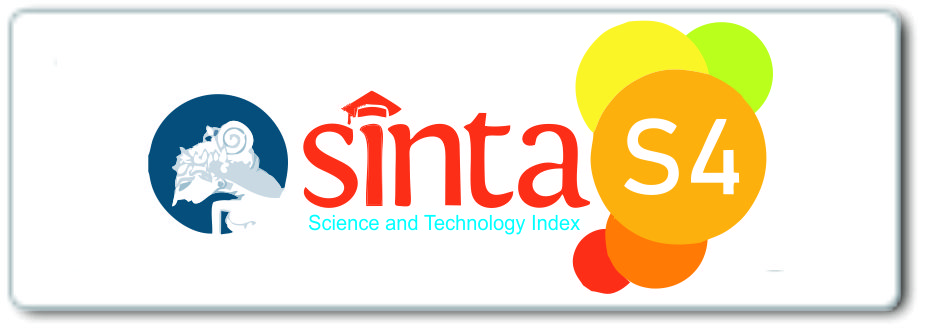Pengaruh Program Acara Talk Show Bugar Bersama Ade Rai Terhadap Pemenuhan Kebutuhan Informasi Pendengar Tentang Kebugaran di Radio PR 107.5 FM Kota Bandung
DOI:
https://doi.org/10.29240/jdk.v2i2.340Abstract
This research focuses on how far the influence of the talk show Bugar Bersama Ade Rai contained in Radio PRFM Bandung in meeting the information needs of listeners about fitness. The research method used is explanatory survey method with quantitative approach and sampling technique used is accpore porpusive sampling. The population of the research were the listeners of the talk show Bugar Bersama Ade Rai in Radio PRFM Bandung and sample of the research were the listeners who often contact the announcer in the question and answer session. Technical analysis of data used is the technique of path analysis and inferential analysis used is the correlation coefficient by using Pearson correlation formula. The results showed the intensity of Talk Show Bugar with Ade Rai influenced both directly to meet the information needs of radio listeners, even indirectly through the content materials and actualization. The content of Talk Show Bugar together with Ade Rai has an effect both directly on the fulfillment of information needs of radio listeners, even indirectly through the intensity and actualization. Whereas the motive of the actualization of Talk Show listeners with Ade Rai has a good effect directly on the fulfillment of information needs radio listeners, even indirectly through the intensity and content of the material. The intensity, content and motive of the actualization of the listeners Talk Show Fit together with Ade Rai influence together towards the fulfillment of information needs of radio listenersDownloads
References
Ardianto, Elvinaro & Bambang Q-Anees. 2009. Filsafat Ilmu Komunikasi. Bandung: Simbiosa Rekatama Media.
Azwar, Saifuddin. 2011. Sikap Manusia Teori dan Pengukurannya. Yogyakarta: Pustaka Pelajar Offset.
Bungin, Burhan. 2009. Sosiologi Komunikasi. Jakarta: Kencana Prenada Media Group.
Cangara, Cangara. 2002. Pengantar Ilmu Komunikasi. Jakarta: Raja Grafindo Persada
DeVito. 1991. Human Communication 5th ed., New York: Harper Collins Publishers Inc.
Effendy, Onong Uchjana. 1989. Kamus Komunikasi. Bandung: Penerbit Mandar Maju.
Effendy, Onong Uchjana. 1993. Dinamika Komunikasi. Bandung: Remaja Rosdakarya.
Fisher, B. Aubrey. 1986. Teori-Teori Komunikasi. Bandung: Remaja Rosdakarya.
Jefkins, Frank Jefkins. 1992.Public Relations. Jakarta: Erlangga
Littlejhon, Stephen. W. 1996. Theories of Human communication 9th ed. Terjemahan: Mohammad Yusuf Hamdan. Jakarta: Salemba Humanika.
Mar’at, Prof.DR. 1982. Sikap Manusia Perubahan serta Pengukuran. Bandung: Ghalia Indonesia.
Miles, Mathew B. & Huberman. 1992. Buku Sumber Tentang Metode-Metode Baru, Jakarta: UI Press.
Morrisan. 2008. Manajemen Media Penyiaran: Strategi Mengelola Radio dan Televisi. Jakarta: Remaja Rosdakarya
Muller, Craig. 2007. Theorizing Communication: Readings Across Traditions, California: Sage Publications.
Mulyana, Deddy. 2008. Ilmu Komunikasi Suatu Pengantar. Bandung: Remaja Rosdakarya.
Rakhmat, Jalaludin. 2007. Psikologi Komunikasi. Bandung: Remaja Rosdakarya.
Severin, Werner J & James W. Tankard. 1979. Teori Komunikasi Sejarah, Metode dan Terapan di Dunia Media Massa. Jakarta: Kencana Prenada Media Group.
Soemirat, Soleh. 2000. Komunikasi Persuasif. Jakarta: UT Depdiknas.
Soerjono, Soekanto. 1999. Sosiologi, Suatu Pengantar. Jakarta: Rajawali Pers.
Sugiyono,. 2010. Statistika untuk Penelitian. Bandung. Alfabeta.
Susanto, Astrid. 1983. Pengantar Sosiologi dan Perubahan Sosial. Jakarta: Binacipta.
Sztompka, Piotr. 1993. Sosiologi Perubahan Sosial. Jakarta: Prenada Media Group.
Tan, Alexis. 1981. Mass Media : Theories and Research. Ohio: Grid.Publishing, Inc.
Tubbs, Stewart L & Moss, Sylvia. 1996. Human Communication : Prinsip-Prinsip Dasar. Terjemahan : Deddy Mulyana. Bandung: Remaja Rosdakarya.
Wright, Charles R . 1985. Sosiologi Komunikasi Massa, Penyunting Jalaluddin Rakhmat. Bandung:Remadja Karya
Downloads
Published
Issue
Section
License
Authors who publish with Jurnal Dakwah dan Komunikasi agree to the following terms:- Authors retain copyright and grant the journal right of first publication with the work simultaneously licensed under a Creative Commons Attribution-NonCommercial-ShareAlike 4.0 International License (CC BY-NC-SA 4.0) that allows others to share the work with an acknowledgment of the work's authorship and initial publication in this journal.
- Authors are able to enter into separate, additional contractual arrangements for the non-exclusive distribution of the journal's published version of the work (e.g., post it to an institutional repository or publish it in a book), with an acknowledgment of its initial publication in this journal.
- Authors are permitted and encouraged to post their work online (e.g., in institutional repositories or on their website) prior to and during the submission process, as it can lead to productive exchanges, as well as earlier and greater citation of published work (See The Effect of Open Access).


